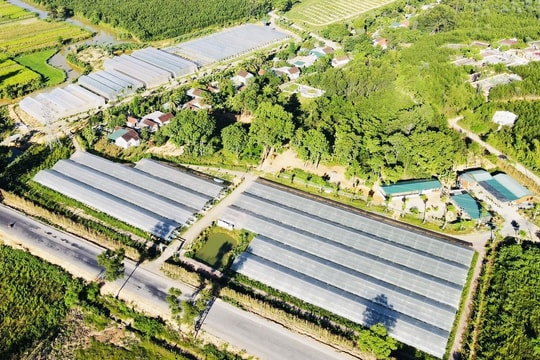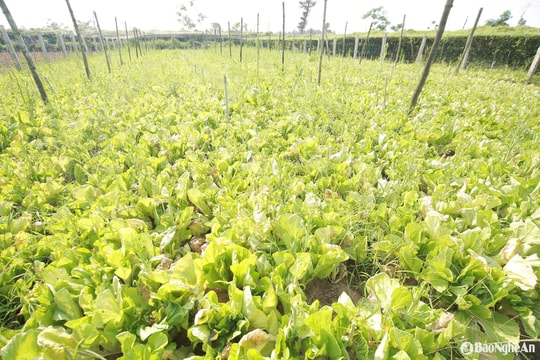Nghe An strives to have 500 effectively operating cooperatives by 2020.
(Baonghean.vn) - On December 27, the Department of Agriculture and Rural Development held a conference to deploy the agricultural cooperative development plan according to Decision 461/QD-TTg of the Prime Minister and Decree 98/2018/ND-CP in Nghe An province.
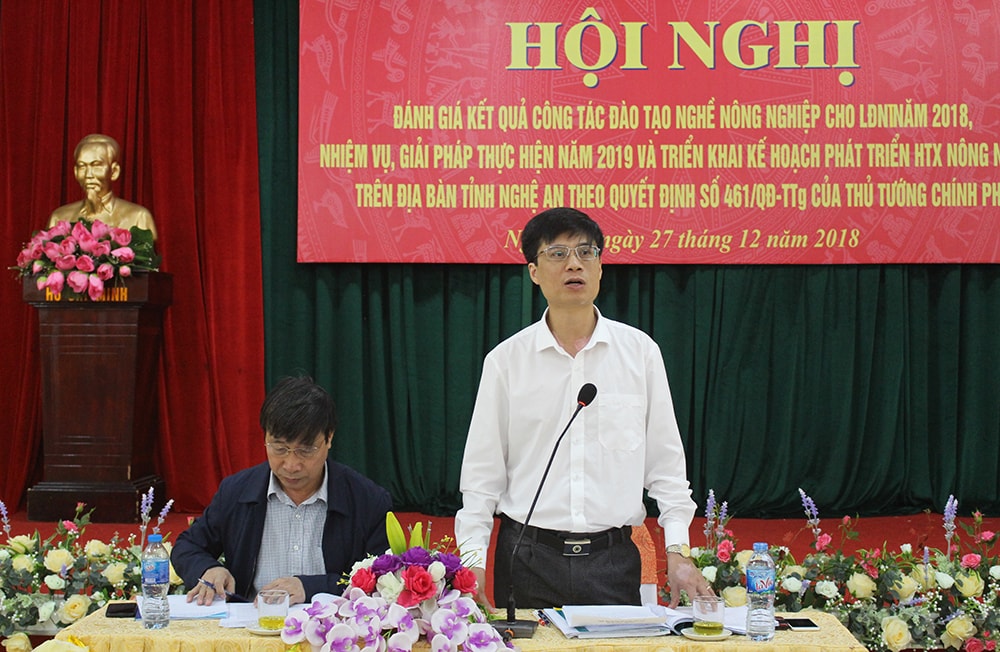 |
| Leaders of the Department of Agriculture and Rural Development chaired the conference. Photo: Phu Huong |
Up to now, Nghe An has 515 agricultural cooperatives, of which 46 were newly established in 2018. The number of effective cooperatives is 203, 164 are operating averagely and 48 are operating poorly. The activities of cooperatives have contributed positively to helping farmers organize production in an effective manner and to meet market needs...
However, the activities of cooperatives have not changed much in quality, many cooperatives are still in a state of difficulty and prolonged weakness; there are not many cooperatives that have organized production of goods, most members are still having to find places to consume their products...
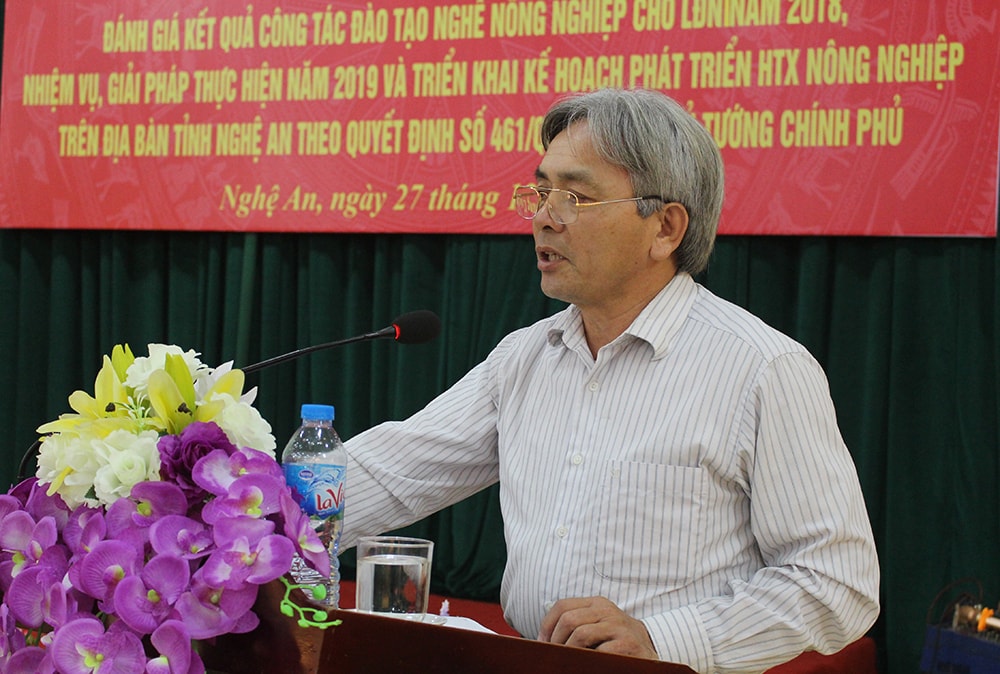 |
| Mr. Ho Sy Quang - Director of Tho Thanh Commune Agricultural Cooperative, Yen Thanh District shared some experiences in improving the efficiency of cooperative operations. Photo: Phu Huong |
Implementing the Government's policy, Nghe An strives to have 500 effectively operating agricultural cooperatives in the province by 2020; develop 15-20 more cooperatives applying CNC in agriculture so that by 2020 there will be about 30-35 cooperatives applying CNC.
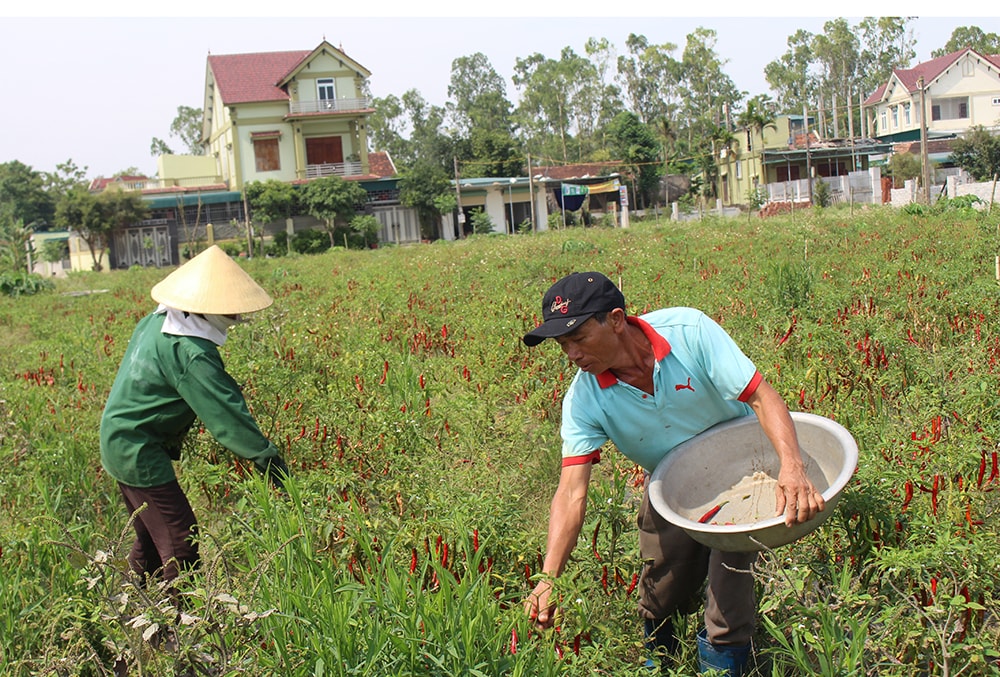 |
| Dien Phong Commune Agricultural Service Cooperative, Dien Chau District organizes cooperation with enterprises to produce hot chili for export. Photo: Phu Huong |
At the conference, delegates focused on discussing many solutions, focusing on disseminating the Law on Cooperatives, introducing typical new cooperative models, promoting training for state officials on cooperative management; strengthening, disseminating, supporting, and helping cooperatives access and benefit from state policies as well as mobilizing resources to effectively support agricultural cooperatives; continuing to promote training to improve the capacity and qualifications of cooperative management staff and cooperative members.

